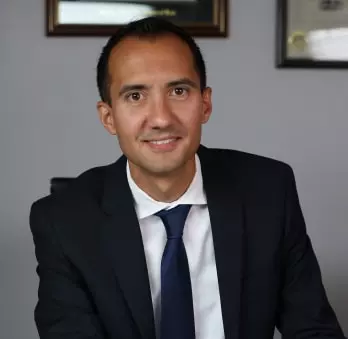
Car accidents involving the use of alcohol and drugs claim the lives of thousands every year.
According to the Minnesota Department of Public Safety, 72 individuals died in Minnesota car accidents involving drunk drivers in 2017.
In addition, 2,389 people suffered injuries in alcohol-related car accidents. In an attempt to lower these numbers, Minnesota imposes serious penalties on drivers convicted of driving while impaired.
If you’re accused of driving over the legal limit in MN, it is crucial that you hire a Minnesota DWI attorney to defend you against the charges.
Otherwise, you could face very harsh penalties. Contact our office today to start with your free consultation.
What Is Driving While Impaired?
Minnesota Statutes Section 169A.20 prohibits motorists from driving, operating, or being in physical control of any motor vehicle while:
- Under the influence of alcohol;
- Under the influence of a controlled substance;
- Having a blood alcohol concentration (BAC) of 0.08 or more;
- Under the influence of an intoxicating substance that the person knows or has reason to know can cause impairment;
- Under the influence of any combination of two or more intoxicating substances; or
- Having BAC of 0.04 or more, if the vehicle is a commercial vehicle.
While some states refer to these prohibitions as DUI laws, in MN they’re referred to as DWI laws.
Additionally, Minnesota motorists commit an additional crime if they refuse to submit to a chemical test of their breath without a warrant, or a blood or urine test if police secured a search warrant.
Consequences of DWI Convictions in Minnesota
The criminal and administrative penalties for a DWI conviction in Minnesota depend on a number of factors, including:
- Your prior alcohol-related convictions;
- Your BAC level at the time of your arrest; and
- Whether any aggravating factors apply.
Though prior DWI convictions enhance the penalties, only DWI convictions from the last 10 years are eligible. The potential penalties available in DUI convictions are described in more detail below.
First Offense DWI
First-time DWI offenders receive a misdemeanor conviction under Minnesota law. The misdemeanor carries the potential of up to 90 days in jail and a fine of $1,000.
Additionally, the state suspends your driver’s license for a period of 90 days. If you plead guilty to DWI, the state reduces the suspension to 30 days.
Certain factors can enhance even a first-time DWI conviction. These factors include:
- BAC at or above 0.16;
- Having a child in the car; or
- Both.
If you commit these violations, you receive a gross misdemeanor. Gross misdemeanors carry the potential of up to a year in jail and a $3,000 fine.
If your BAC was at or above 0.16, the state will suspend your license for one year without an option to shorten the period. Additionally, the state will impound your plates.
Second Offense DWI
Second-time DWI offenders receive a gross misdemeanor charge. Gross misdemeanors carry the potential of up to a year in jail and a $3,000 fine. Second-time DWI offenses carry a mandatory 30-day jail sentence.
A second DWI conviction automatically results in either losing your license for an entire year or getting an ignition interlock restricted driver’s license. The state will also impound your plates.
If your BAC was at or above 0.16, or you had a child in the car, the conviction still amounts to a gross misdemeanor.
However, the license suspension/ignition interlock restricted license period extends to two years instead of just one. Additionally, the court will impound your plates and attempt to forfeit your vehicle.
Third Offense DWI
A third DWI qualifies as a gross misdemeanor as well, but convictions result in a 90-day mandatory jail sentence and harsher administrative penalties.
After a third DWI, the state will cancel your driver’s license entirely. You can obtain an ignition interlock restricted driver’s license for one year once you enroll in drug/alcohol treatment.
Upon completion of treatment, you can reinstate your normal driver’s license after two years. The state will also impound your license plates and forfeit your vehicle at the time of your conviction.
Fourth Offense DWI
A fourth DWI in a ten-year period qualifies as a felony. A felony DWI carries a mandatory 180 day sin jail and the potential of up to seven years in prison in addition to a fine of up to $14,000.
Additionally, the state will cancel your driver’s license entirely. You can obtain an ignition interlock restricted driver’s license for one year once you enroll in drug/alcohol treatment.
Upon completion of treatment, you can reinstate your normal driver’s license after two years. The state will also impound your license plates and forfeit your vehicle at the time of your conviction.
Accused of Driving Over the Legal Limit in MN? Contact a DUI Attorney Today
DWI convictions can result in serious criminal penalties. However, they can impact your life in other ways too. In fact, it can limit your job opportunities and increase the price of your car insurance premium.
In some cases, issues exist that hurt the prosecutor’s chance of proving your guilt beyond a reasonable doubt.
When this occurs, it’s vital that you have a DWI defense attorney on your side to advocate for having your charges lessened or dismissed entirely.
Additionally, an experienced criminal defense lawyer can walk you through the process of your criminal case and answer any questions you have along the way.
The Criminal Defense Attorney & Workers Compensation Law Offices of Arechigo & Stokka has experience representing criminal defendants facing a wide variety of criminal charges.
In fact, Attorney John T. Arechigo dedicates his entire practice to representing individuals charged with criminal violations. Contact us today so we can get started reviewing your case.




